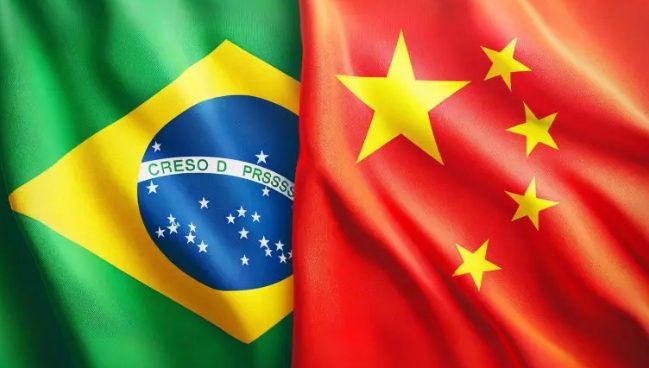Brazil and China, as key members of the BRICS alliance, are set to bolster their bilateral ties and advance efforts towards de-dollarization. The upcoming 7th Plenary Session of the Sino-Brazilian High-level Partnership and Cooperation Commission, with the participation of Brazil’s Vice President Geraldo Alckmin, signifies a crucial step in the strategic partnership between the two nations.
The meeting aims to elevate collaboration across various sectors such as energy, finance, trade, food security, and infrastructure. By reducing reliance on the US dollar, Brazil and China are aligning with the BRICS bloc’s objective of fostering economic cooperation and diversification. This unified approach towards a more diverse global economy can harness their combined strengths for mutual growth and progress.

Commemorating 50 years of diplomatic relations, Brazil and China have deepened their friendship and shared development. Their considerable advancements in trade and investments have solidified China as Brazil’s principal trade partner. This landmark anniversary underscores their dedication to cooperation and a shared vision for a fairer global economic landscape.
The gathering will bring together 400 business representatives from both nations, creating a platform for exploring collaborative opportunities and enhancing economic ties. This interaction will facilitate the exchange of knowledge, technologies, and best practices, fostering innovation and advancement in key sectors. Through mutual investments and trade promotions, Brazil and China can unlock fresh prospects and secure a prosperous outlook for their people.
The reinforced collaboration between Brazil and China holds significant implications for the worldwide economy. As two major emerging markets, their alliance can propel growth, open new avenues, and encourage economic diversification. By uniting efforts, they can tackle shared challenges like climate change, inequality, and social progress.
The collective effort of the BRICS alliance, comprising Brazil, China, India, Russia, and South Africa, has emerged as a formidable influence in global economics. Their initiatives towards de-dollarization seek to minimize reliance on the US dollar and advocate for the use of national currencies in global trade. By doing so, the BRICS nations aim to fortify their economic autonomy, diminish vulnerability to currency fluctuations, and foster more balanced trade relationships.
The strengthened bonds between Brazil and China, coupled with their commitment to de-dollarization, mark a pivotal advancement towards a more diverse global economy. As crucial members of the BRICS alliance, their partnership has the potential to propel growth, foster economic synergy, and shape a brighter future for their citizens.



